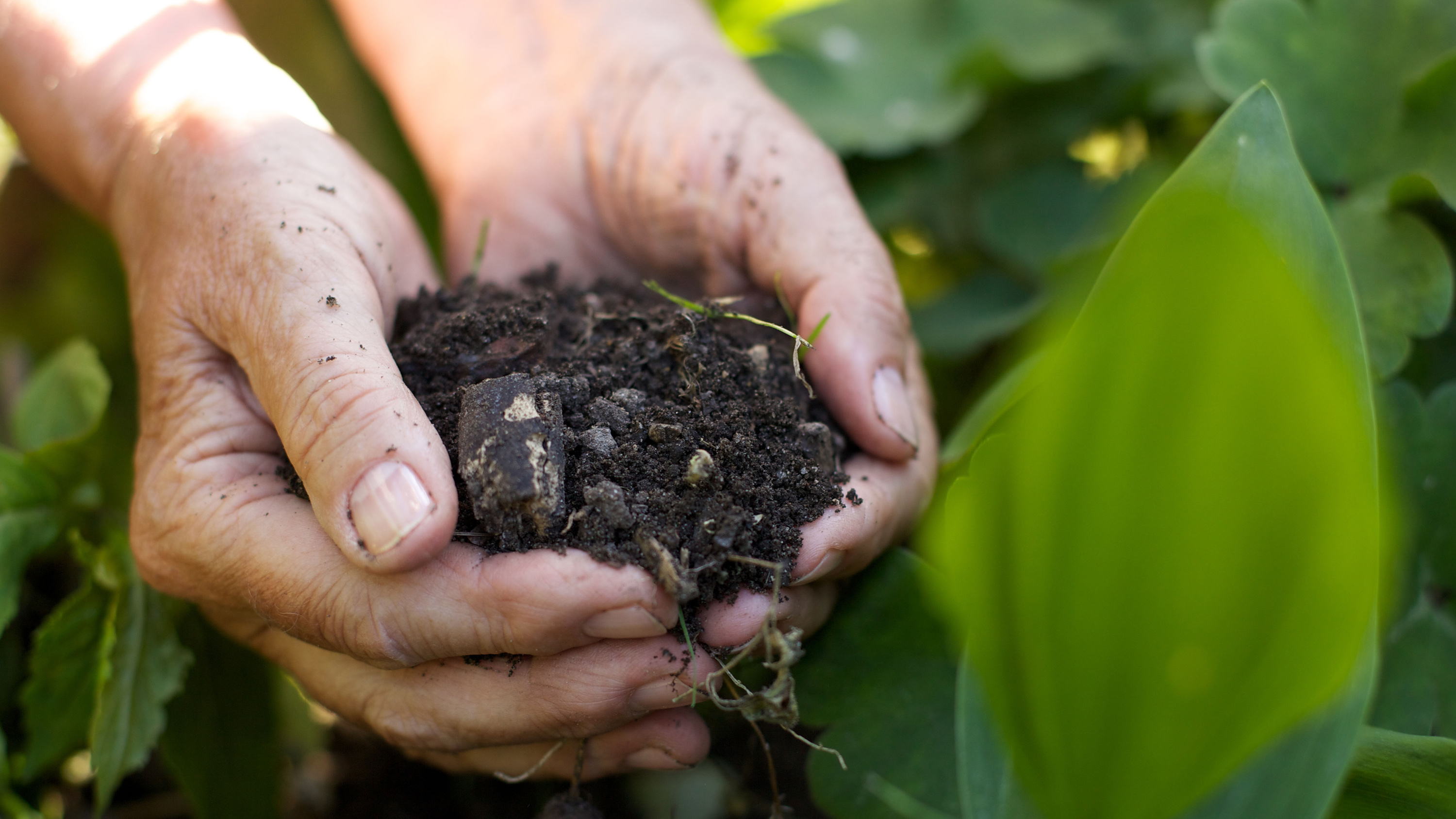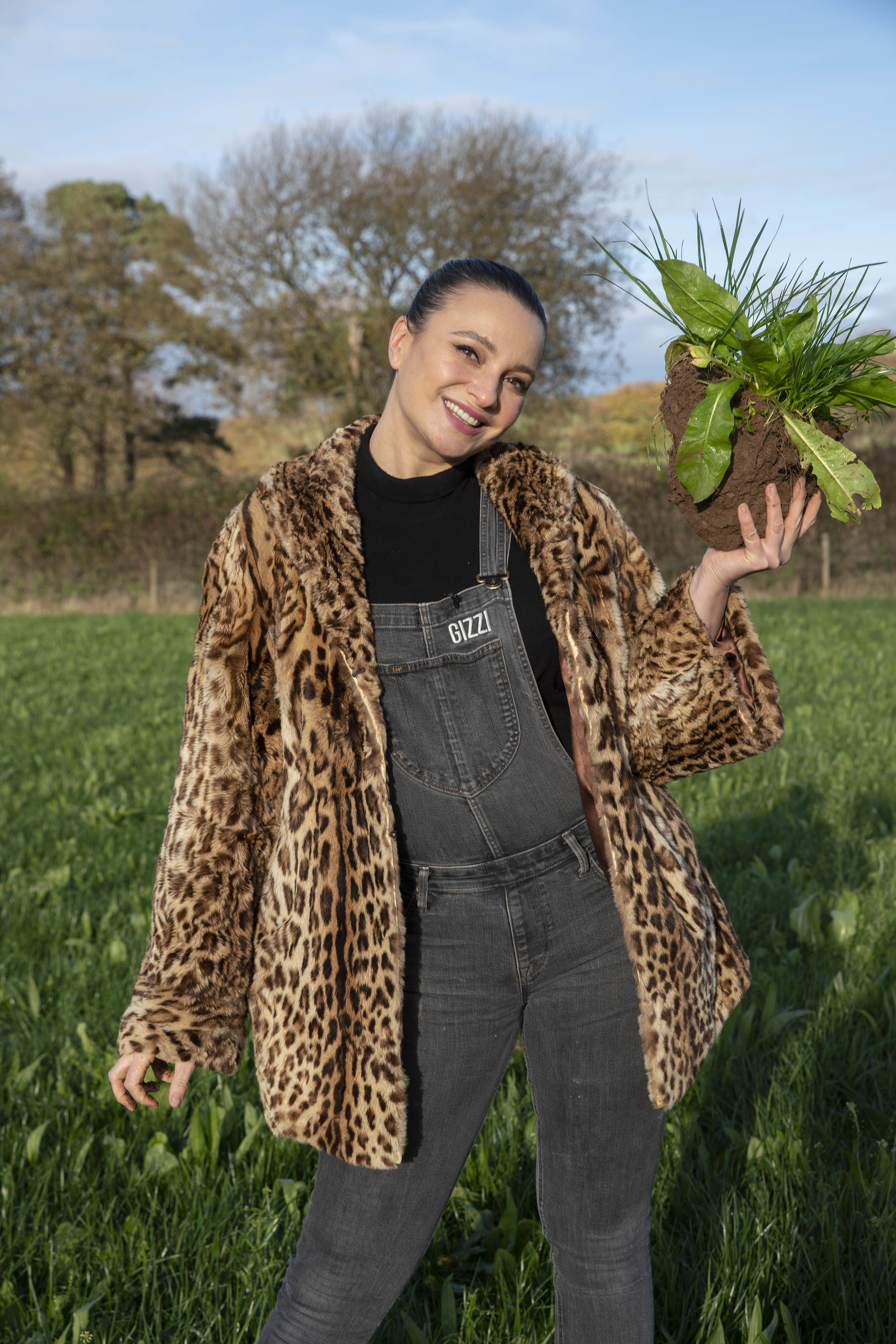The health of soil is vital to the planet. Here’s how to nurture yours
Soil is home to more than 25 per cent of earth’s biodiversity. Discover the ways you can put nature first in your own garden for World Soil Day


As gardeners, we’re used to thinking about the health and fertility of the soil in our plots. But soil does more than just help us create the outdoor spaces we want. There’s a whole world going on beneath our feet that makes life on earth possible.
Our plants nurture creatures in the soil and in return these creatures feed and protect plants so promoting soil health is vital. And even if we have only the smallest of gardens, we can do our bit to help the environment as well as ensuring our own outdoor spaces are great for growing.
World Soil Day is an event that’s held annually, taking place on 5 December this year, and its aim is to focus attention on the importance of healthy soil and advocate for sustainable management of soil resources. To mark the event, chef, TV personality, award-winning food writer and soil activist Gizzi Erskine has teamed up with Yeo Valley Organic to get the UK talking about the importance of soil and regenerative farming as a solution to the climate crisis.
Discover how you can help with Gizzi’s top tips on promoting soil health and putting nature first, below. And if you want to learn more about the earth in your garden, our guide to soil types has all you need to know.
6 top tips for World Soil Day from Gizzi Erskine

1. Aim to introduce a range of different plants to create biodiversity in your garden. Grasses, shrubs, vegetables and legumes all thrive in harmony with each other and each of them plays a role in maintaining soil health.
2. Learn how to compost. Home-made compost is a fantastic way of recycling plant material, feeding plants, soil life and locking carbon back into the ground. Keep your old veg peelings, apple cores, banana skins and mouldy fruit – when added to one of the best compost bins they will mulch down over time, encouraging worms, woodlice and insects to digest the food and create a pile of nutrient-dense compost to spread on your soil.
3. Keep bare soil covered at all times with a layer of green manure – introducing fast growing plants like clover, which protect soil and prevent erosion. The plants pull carbon down from the atmosphere through photosynthesis, making carbohydrates and sugars that travel through the roots and into the soil, feeding the millions of microorganisms that live in the earth.
4. Digging destroys soil structure, tearing apart the home created by living organisms that create natural soil fertility. Avoid the use of synthetic chemicals and pesticides which lead to soil erosion.
Learn about this method in our no dig gardening guide.
5. Switch your everyday purchases to organic ones. Supporting organic farming can help to slow down climate change. If you’re on a mission to make a difference, a really simple step you can make is to swap out your current groceries, like milk, cheese and yogurt, with organic alternatives.
6. Buy grass-fed meat, little and often. The grazing of plants by animals has a major, positive impact on climate change by cycling more carbon out of the atmosphere and putting it into the soil. By occasionally choosing to buy high quality meat, you can have a positive impact on the environment.
Find out more about how to put nature first from Yeo Valley Organic.
Read more:
- Ultimate guide to mulching: easy ways to improve your garden
- How to create an eco-friendly garden
- Wildlife garden ideas: attract creatures great and small

Sarah is a freelance journalist and editor writing for websites, national newspapers, and magazines. She’s spent most of her journalistic career specialising in homes and gardens and loves investigating the benefits, costs and practicalities of home improvement. It's no big surprise that she likes to put what she writes about into practice, and is a serial house revamper.
